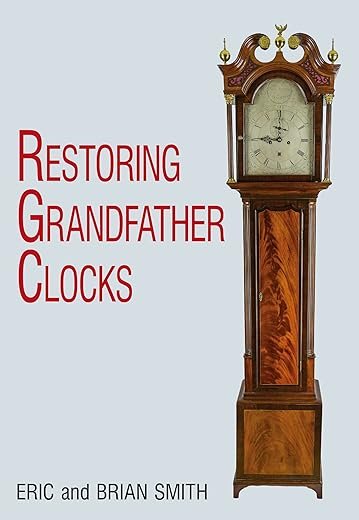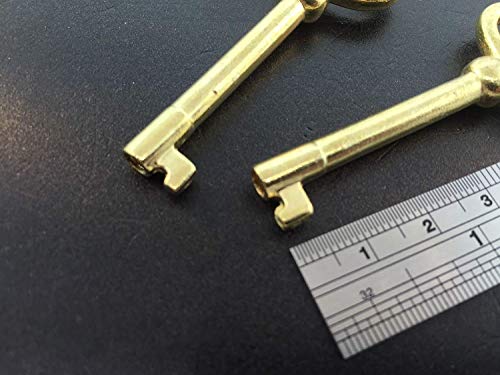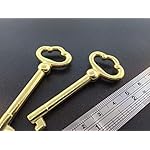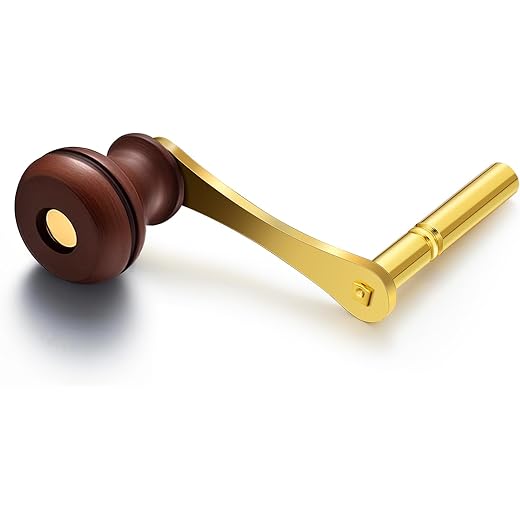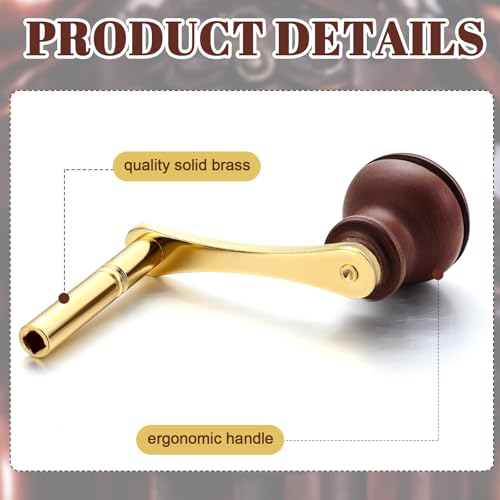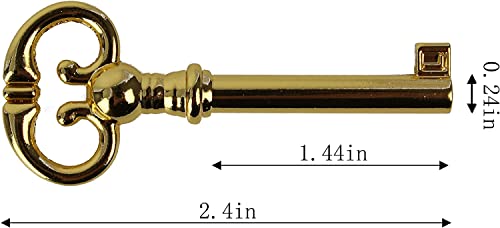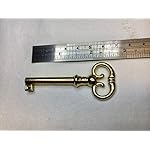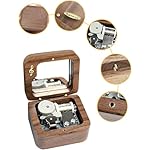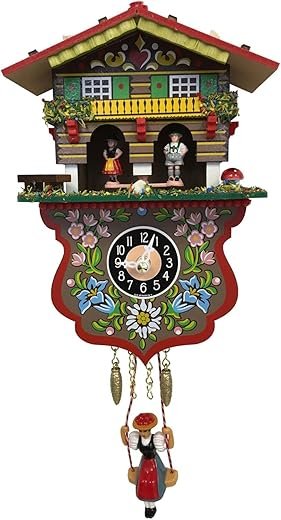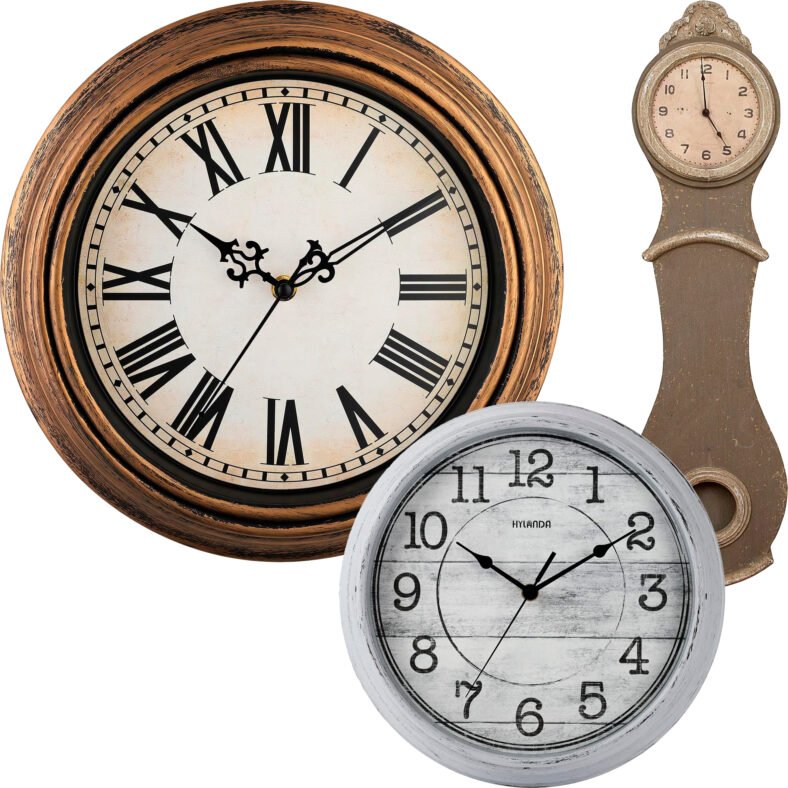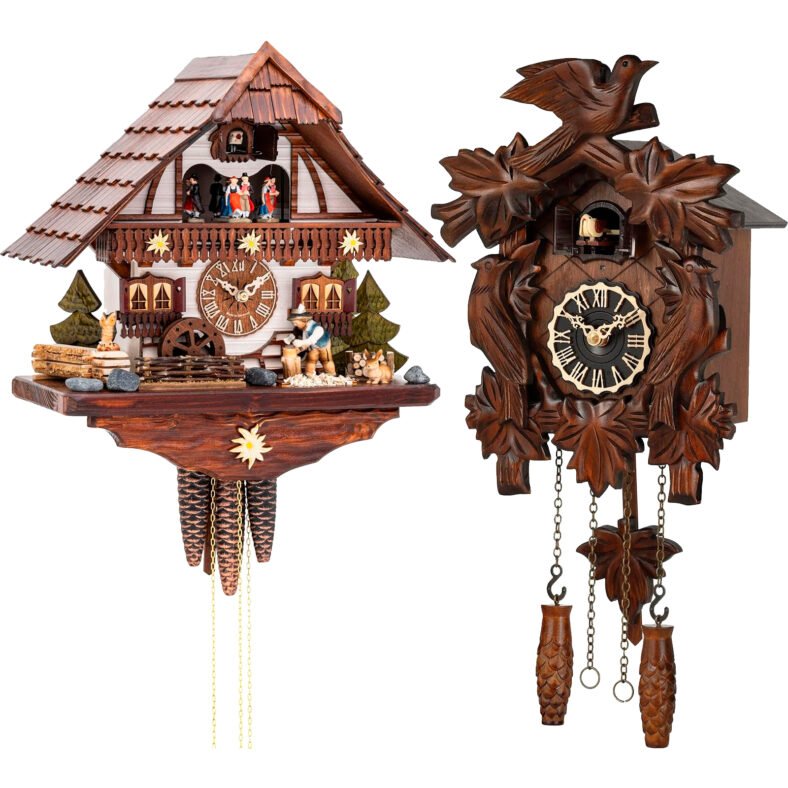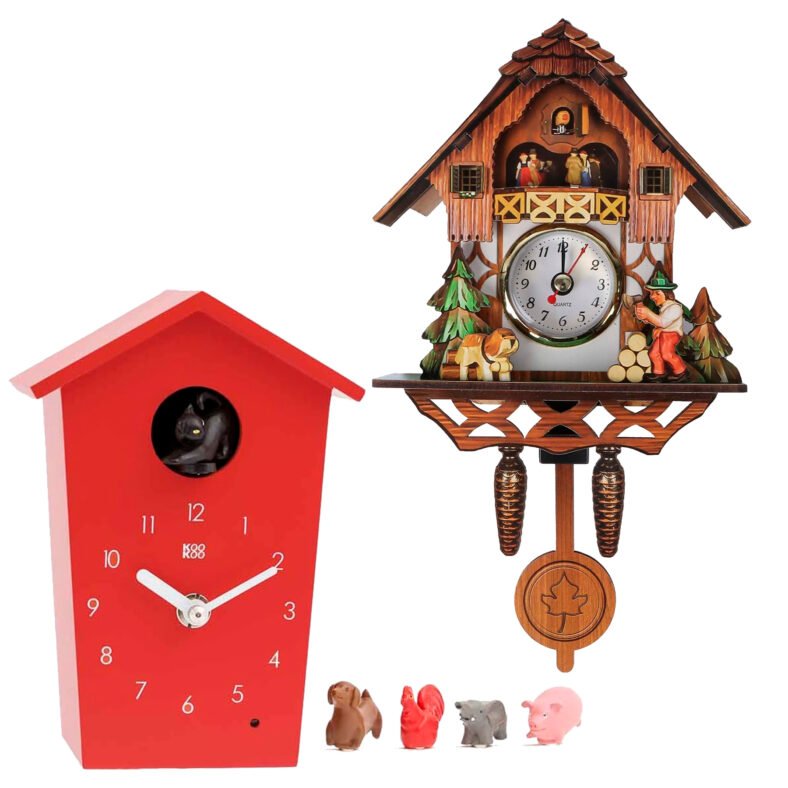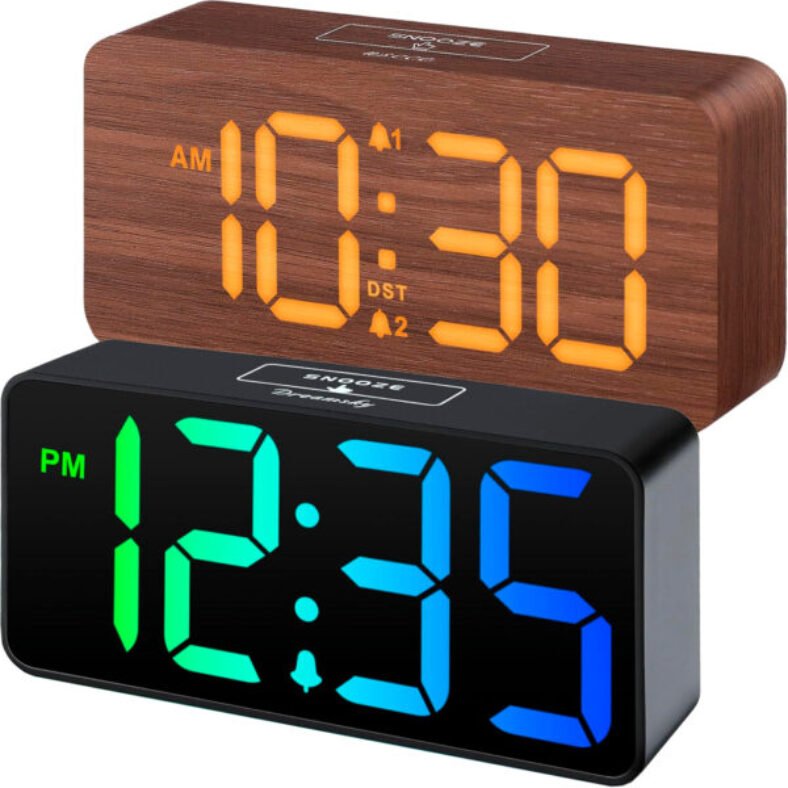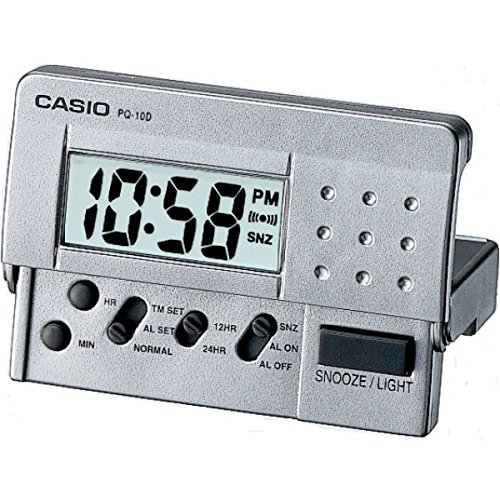Our Picks For Top Of The Best
Antique Grandfather Clock Parts

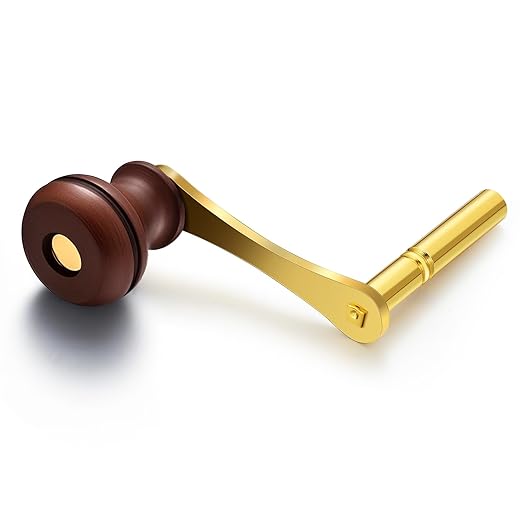

Check List On The Best Antique Grandfather Clock Parts
Guide to Restoring Grandfather Clocks
Best detailed restoration manualWhat this book is for
We view this title as a practical workshop companion for anyone who owns or wants to restore a longcase (grandfather) clock. It focuses on both the mechanical movement and the wooden case, so readers get a rounded view of the tasks involved from cleaning gears to repairing veneer.
We found this book to be a thorough, practical introduction to repairing and restoring longcase clocks, aimed at hobbyists and new restorers. It balances mechanical instructions with casework guidance and helps readers decide when to do a job themselves versus calling a professional.
Brass Key Set for Howard Miller
Best spare key setWho this is for
We recommend this key set for owners of Howard Miller and similar grandfather or grandmother clocks who want an inexpensive spare or an immediate replacement. The length and shaft dimensions make them suitable for common cabinet locks and interior fittings.
We found this two-key set to be a reliable, economical spare for many Howard Miller and similar clocks. The pair gives immediate peace of mind—one to use and one to keep as a backup—though occasional quality variation has been reported.
4mm Brass Grandfather Clock Winder
Best for comfortable manual windingWhy choose a crank-style winder
We prefer a crank (winder) for weekly winding chores because the handle gives leverage and reduces wrist strain compared with tiny square keys. This model is aimed at clocks that accept a 4 mm inner-diameter winding interface and combines a brass fitting with a comfortable wooden handle.
We found this crank-style winder comfortable and well-suited to regular manual winding of clocks that use a 4 mm inner diameter arbor. The wood handle and brass construction make winding easier on the hands and provide a more secure grip than small flat keys.
Universal Grandfather Clock Door Key
Best budget replacement keyWhy we like this key
We see this as a sensible first stop when a cabinet key is lost or when you need an inexpensive replacement for a clock made before 2004. Its brass finish makes it visually compatible with Victorian-style cases and many late-20th-century longcase clocks.
We consider this a practical, low-cost solution for owners missing a cabinet or winding key for many modern grandfather clocks. It fits a large number of makes but is not an OEM part, so fit can vary depending on the specific lock or shaft detail.
Grandfather Clock Wooden Music Box
Perfect small gift for clock loversSmall, nostalgic music box for gifts
We find this mini wooden music box a delightful, low-cost gift for someone who loves clock-themed items or collectible music boxes. The compact size makes it easy to display on a mantel or keep among other keepsakes, and the wind-up Sankyo movement provides dependable performance without batteries.
We see this as a charming, compact music box that evokes the classic 'grandfather clock' melody in a decorative wooden shell. It’s a delightful gift item, though the tone can be slightly metallic compared with higher-end music movements.
Guide to Caring for and Restoring Antique Grandfather Clocks
We’ve worked on a lot of heirloom clocks and advised owners at every skill level. This guide focuses on practical, safe steps you can take, which tools matter most, and how to decide when to escalate.
Quick assessment: what to look for first
- Check that the clock is level front-to-back and side-to-side. A lopsided case often stops the pendulum.
- Listen: is there a faint tick or total silence? Faint ticking usually means low power or friction; silence could indicate a broken suspension or disengaged escapement.
- Inspect the case for woodworm, loose fittings, or swollen doors. Cosmetic issues are separate from movement problems but matter for long-term preservation.
Tools and parts that actually help
- We recommend the "Guide to Restoring Grandfather Clocks" as your foundational resource. It teaches safe cleaning, lubrication points, and how to inspect key components so you avoid common mistakes.
- For everyday operation: keep a matched key set and a comfortable winder. The "Brass Key Set for Howard Miller" is a practical spare; the "4mm Brass Grandfather Clock Winder" reduces wrist strain and slips less than tiny flat keys.
- Keep one inexpensive "Universal Grandfather Clock Door Key" for cabinet locks, but don’t rely on budget tools for delicate movement work.
Routine maintenance checklist (monthly/annual)
- Weekly: wind on the same day; don’t force resistance—stop if something binds.
- Monthly: dust case interiors gently with a soft brush; check pendulum suspension for cracks or fraying.
- Every 3–5 years: have the movement inspected and, if needed, professionally cleaned and oiled. DIY oiling without proper cleaning can trap grit and accelerate wear.
When restoration is worth it — and when preservation wins
- Restore (full work) when the movement has sentimental or material value and the clock is structurally sound. Use the restoration manual to scope tasks you can do yourself (casework repairs, re-bushing minor wear) and which require skilled intervention (pivot replacement, full rebushing patterns).
- Preserve rather than restore if the clock’s finish has historical patina that adds value. In those cases, cosmetic gentle conservation is better than aggressive refinishing.
Quick product comparison
| Need | Best Product | Why we recommend it |
|---|---|---|
| Learn to repair safely | Guide to Restoring Grandfather Clocks | Thorough, balances mechanics and casework |
| Everyday winding & backup | Brass Key Set for Howard Miller | Reliable spare keys for many modern clocks |
| Comfortable regular winding | 4mm Brass Grandfather Clock Winder | Ergonomic handle and correct fit for 4mm arbors |
| Low-cost cabinet key | Universal Grandfather Clock Door Key | Practical for many locks, but not OEM |
| Gift / small clock vibe | Grandfather Clock Wooden Music Box | Decorative, charming melody |
We want you to enjoy the clock as an heirloom, not as a headache. Start with the guide, keep the right keys and a proper winder on hand, and be willing to call in a pro for anything that risks the movement. Small, consistent care keeps these majestic timekeepers striking true for generations.
Final Thoughts
For anyone ready to roll up their sleeves and truly understand the mechanics, our top pick is the "Guide to Restoring Grandfather Clocks" (Best detailed restoration manual). It’s the clearest path from curious owner to confident hobbyist — great for diagnosing issues, learning casework basics, and deciding when to call a pro.
If your goal is straightforward, everyday reliability, pair the "Brass Key Set for Howard Miller" (Best spare key set) with the "4mm Brass Grandfather Clock Winder" (Best for comfortable manual winding). The key set gives you immediate peace of mind; the winder makes regular winding easier and safer for the arbor and your hands. Keep the Universal Grandfather Clock Door Key as a low-cost backup, and the Grandfather Clock Wooden Music Box as a small, charming gift or decorative complement.
More Best Antique Grandfather Clock Parts
FAQ
How do we know which winding tool fits our clock?
Measure the inner diameter of the winding arbor. If you don’t have calipers, carefully compare a removable key or arbor to the 4mm winder or test-fit a spare key. The "4mm Brass Grandfather Clock Winder" is designed for 4 mm arbors; the "Brass Key Set for Howard Miller" covers many common modern clock fittings. If fit is uncertain, start with a universal or adjustable option and avoid forcing anything.
How often should we wind an antique grandfather clock?
Most longcase clocks need winding weekly (often every 7–8 days). Some eight-day movements are designed for a once-a-week routine. We set a recurring day to keep timekeeping consistent and avoid running the movement down, which stresses parts.
When should we consult a professional instead of DIY?
Call a pro if you find seized gears, broken teeth, bent arbors, heavy corrosion, or if the movement’s escapement looks damaged. Use the restoration guide to check clear, reversible tasks (cleaning, lubrication, minor casework). For anything that risks permanent damage to the movement, pause and seek an experienced clockmaker.
Can a universal door key or cheap replacement harm our clock?
A poorly fitting cabinet key is unlikely to damage the movement but can mar locks or break in the keyway. For winding arbors, an ill-fitting key or excessive torque CAN bend arbors or strip parts. We recommend matching sizes and using the proper 4mm winder or a correct-fit key set to minimize risk.
Do we really need two keys?
Yes. We prefer having one in regular use and one as a backup. A spare keeps you from improvising with ill-fitting tools, which is how damage happens. The "Brass Key Set for Howard Miller" gives that immediate convenience.
Is the Grandfather Clock Wooden Music Box useful for repairs?
Not for repairs — but it’s a lovely accessory. If you’re gifting a clock enthusiast or want a compact, clock-like melody for display where a full clock won’t fit, it’s a charming pick.
